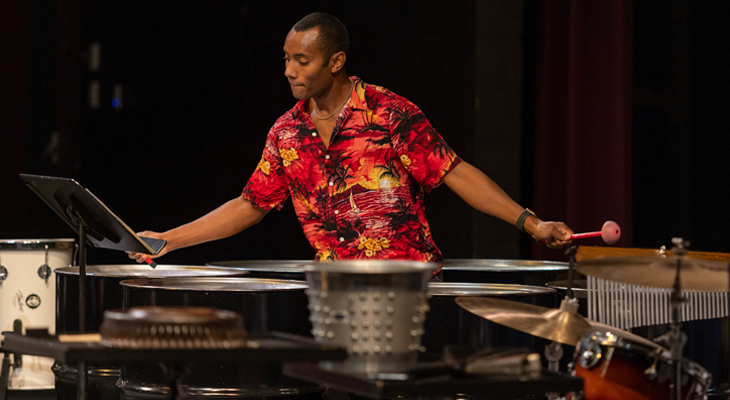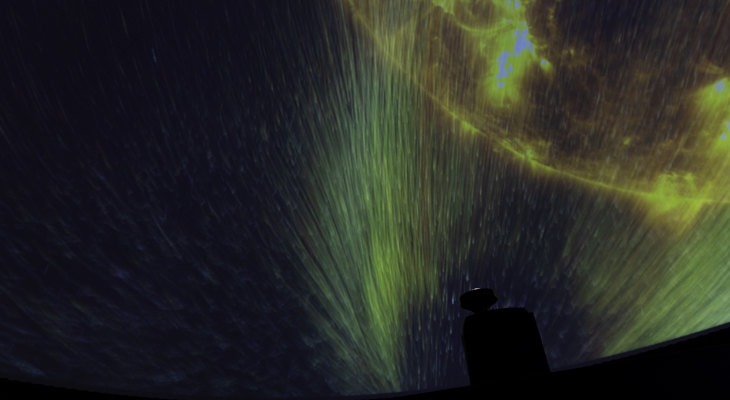
Steel Band Concert
On Saturday, Oct. 14, Joliet Junior College (JJC) will provide the community an opportunity to safely view the partial eclipse from outside of the Event Center on Main Campus, 1215 Houbolt Rd. in Joliet, Ill.
The JJC solar viewing event will begin at 10:15 a.m. and conclude at 12:45 p.m. The eclipse will begin at 10:36 a.m., its maximum at 11:57 a.m. and end at 1:23 p.m. The moon will obscure 44.2% of the sun’s disk at maximum eclipse.
A limited number of solar eclipse viewers will be available. Guests will also be able to view projected images of the sun using Sunspotter telescopes and Sun Funnel on an 8-inch telescope. In addition, a specialized solar telescope will be available to view solar prominences.
A LightSound device attached to a loudspeaker will be available for blind and visually impaired guests to experience the eclipse via sound. As the intensity of sunlight changes during the eclipse, the musical tone output by the device will change.
While people in Joliet will experience a partial solar eclipse, those in a roughly 125-mile-wide path stretching from Oregon to Texas, and into Mexico, Central and northern South America, will see an annular solar eclipse. As the moon moves between the Earth and the sun, it will not completely cover the sun’s disk, causing a thin “ring of fire” (or annulus) of the sun’s disk to remain visible. NASA’s live-feed of the annular solar eclipse will be played in the Event Center turf area (EC-1001) during the event.
Attendees are welcome to bring their own food and drink to this free event. Concessions and restrooms will be available inside the Event Center. Only water bottles are allowed inside the Event Center. In the event of rain or clouds, the event will move indoors to the Event Center.
More information is available visiting jjc.edu or by contacting Professor Noella Dcruz at ndcruz@jjc.edu
CAUTION: Do NOT look at the sun directly with the unaided eye, or through a telescope or binoculars that do not have a reliable, correctly fitted solar filter. This could cause permanent eye damage, including blindness.
Media inquiries can be directed to Katherine Smith, communications and media manager, katherine.smith@jjc.edu

